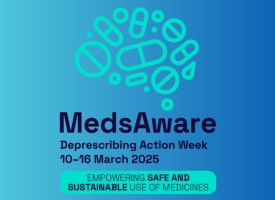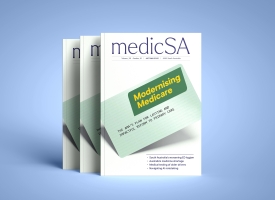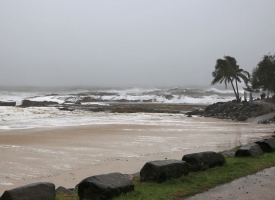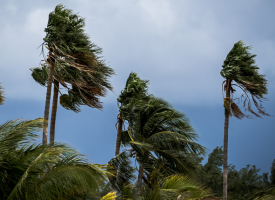AMA Vice President on updated position statement on the role of doctors in disasters
Transcript: AMA Vice President, Dr Chris Moy, Outlet: ABC Radio National Breakfast, Thursday, 16 June 2022
Subject: AMA Position Statement on the role of doctors in disasters
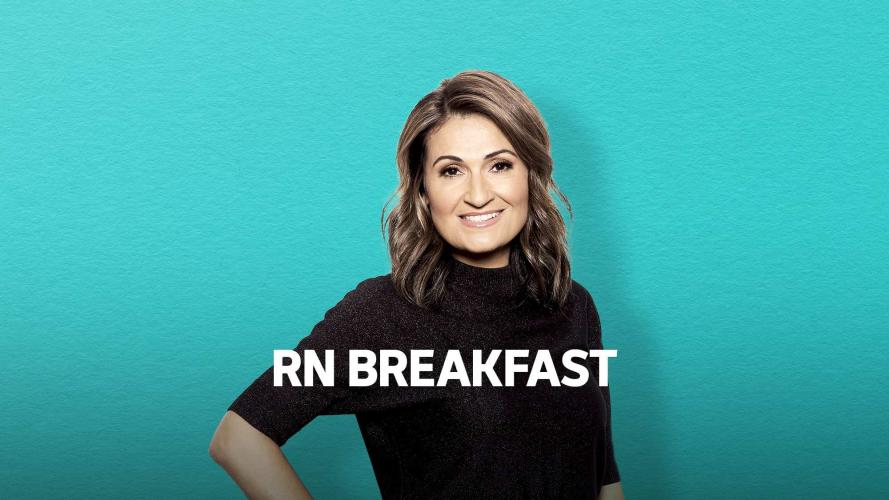
PATRICIA KARVELAS: If a natural disaster hit your town, what role would your GP play in keeping you safe and providing care? It's a question Australian doctors want you to think about as they call for GPs to have a greater role in planning and responding to floods, fires and other disasters. Experts say it's a good idea and that it's vital to bring them in before a disaster strikes.
Max Chalmers has more.
MAX CHALMERS: When fire surrounded the Victorian town of Mallacoota on New Year's Eve in 2019, thousands of people sheltered on a beach under the menacing orange sky. A mass evacuation followed, but as people fled town local GP Sara Renwick-Lau was trying to get back in.
Having escaped the fire and made it to Eden in southern New South Wales, she was now rushing back to help kick start the town's health response.
SARA RENWICK-LAU: The water police agreed to take us, and the local Incident Management Team at that point said: This is a disaster area, you can't return. It was pretty heartbreaking, actually. It was- When you're aware of the work and the effort that you put into maintaining services into a remote community for many years, to know that when you can now be of most benefit, or at least benefit in the darkest time, that someone's made an arbitrary decision that the community don't want access to that.
MAX CHALMERS: Frustrated, Sara Renwick-Lau took matters into her own hands.
SARA RENWICK-LAU: We actually snuck in on a private boat back into town.
MAX CHALMERS: Back in Mallacoota, she got to work treating shell-shocked locals, as her clinic kept the lights on with a diesel-powered generator.
SARA RENWICK-LAU: The biggest issue for us was that we were having ambulances attend 000 calls bringing patients here, because they weren't able to evacuate them - particularly if the smoke was too bad and they couldn't actually get aircraft in and out. And essentially, we became a referral centre for ambulance - so we were an emergency department.
MAX CHALMERS: Sara Renwick-Lau says it was unclear who, if anyone, she was supposed to talk to and who could offer help. She says better planning would have helped her three-doctor clinic get the town through its darkest hour.
SARA RENWICK-LAU: I remember, at one point, just chasing the diesel truck down the road, just pleading with him to just prioritise the medical centre for some diesel, because we were getting a bit short on diesel. We didn't even exist on a list of, you know, these are the services that, if there was rationed fuel, that we would have- we didn't know whether or not we would have access to any fuel if it was rationed.
MAX CHALMERS: As the severity of disasters increases, the Australian Medical Association is now calling for doctors to have a greater role in disaster planning and management. In a new position statement, it says planning is needed to help doctors with practical questions, as well as ethical considerations like when to ration care and how to prioritise patients.
Dr Chris Moy is the AMA's Vice-President.
CHRIS MOY: The pandemic, and also the bushfires before the pandemic, have been disasters which are really at the cutting edge, which really test the health system, but also the communities. What we really need to do is to learn some of those lessons and convey them for the future.
There's quite a big difference between making a decision from upon high and not understanding the needs on the ground; and understanding, for example like a GP like me, who really does get what my patients need.
MAX CHALMERS: Chris Moy says that means giving doctors a seat at the table at the local level. But higher up the chain, he says there needs to be independent medical voices able to speak openly to the public. He says different state responses to the COVID pandemic show why.
CHRIS MOY: I think in New South Wales you can probably see that there was a filter between the health decision making, and the politicians decided what they want to do above that. Whereas for example, in South Australia there probably was a different response where the Government clearly put the public health officer and the Commissioner of Police in charge of the decision making for the response. And so there was far less filtering of, first up, the decision making, but also there was clear transparency about why they made decisions.
MAX CHALMERS: Needless to say, the New South Wales Government doesn't agree with that characterisation. But the AMA now wants the Federal Government to set up an independent centre for disease control to help ensure health advice is transparent in future Health emergencies.
The new Labor Government has committed to the idea, and former Health Department Secretary, Stephen Duckett, thinks it's a good one. He also says it's important to discuss how GP's fit a town's response before disaster strikes.
STEPHEN DUCKETT: Everybody should have a seat at the table, in which case the table becomes 100 person round table. Because obviously, you want the firies there, you'd want the water supply people there, you'd want the mental health people there, you want the GP's there. Emergency Management is not a talkfest, but you've got to have the consultation and the engagement in times like now in case of the bushfires so that when the bushfire starts, you know what you're doing and who's going- who's role is what.
MAX CHALMERS: Experts and doctors agree that one barrier to progress is the confusing overlap of federal, state and local government responsibilities. David Templeman is a former director general of Emergency Management Australia, and former president of the Public Health Association of Australia. He says reforms could go beyond giving doctors a bigger say in the process.
DAVID TEMPLEMAN: Not only are doctors, GPs required in this process, but even people like veterinarians need to be- get invited into this process as well. I mean, since these unfortunate events that we've had, you know, the '19 - '20 fires and the more recent floods, the need to have better coordination and better planning and understanding right across the board, and particularly at the community level, is come out as the number one sort of priority.
MAX CHALMERS: Back in Mallacoota, Sara Renwick-Lau still doesn't feel like her local expertise has been brought to the table. She's worried if another disaster strikes the same mistakes could be made again.
SARA RENWICK-LAU: I can't really say that I can see that it would be any different. That, you know, there's some concerns that I have that I think, as a community, we need to respond to. But I don't really have any easy access to processes or any organisation to be able to feed that information into and to get some resourcing and support around addressing them.
PATRICIA KARVELAS: And that's Mallacoota GP, Sarah Renwick-Lau, ending that report by Max Chalmers.
